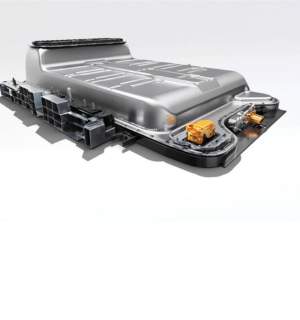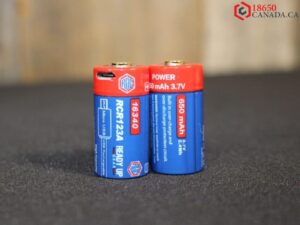Overview of Electric Vehicles
The rapid advancement of technology has paved the way for electric vehicles to become a viable alternative to traditional internal combustion engine vehicles. EVs are powered by electric motors that run on electricity stored in onboard batteries, eliminating the need for fossil fuels and reducing harmful emissions.
In this article, we explore the significant role that lithium-ion batteries play in powering the future of electric vehicles (EVs). We discuss the definition and composition of lithium-ion batteries, highlighting their advantages such as high energy density, longer battery life, and faster charging capabilities. We also delve into advancements in lithium-ion battery technology, including increased energy density, improved battery life, and faster charging speeds.
The environmental impact of lithium-ion batteries is addressed, focusing on issues such as lithium extraction and recycling. We highlight the challenges and future prospects of lithium-ion batteries, including safety concerns and the exploration of alternative battery technologies such as solid-state batteries. Ultimately, we emphasize the importance of lithium-ion batteries in the growth of the EV industry and conclude with frequently asked questions and a call to action.
Importance of Batteries in Electric Vehicles
Batteries play a pivotal role in electric vehicles by storing and providing the required energy to power the electric motor. As a result, the performance, range, and overall functionality of EVs heavily depend on the capabilities of the battery technology used.
Understanding Lithium-Ion Batteries
Definition and Composition of Lithium-Ion Batteries
Lithium-ion batteries are rechargeable energy storage devices that utilize lithium ions as the primary means of energy transfer. They consist of one or more cells, each containing positive and negative electrodes separated by an electrolyte. The electrodes are typically made of materials like lithium cobalt oxide or lithium iron phosphate.
Advantages of Lithium-Ion Batteries For Electric Vehicles
Lithium-ion batteries offer several advantages that make them an ideal choice for electric vehicles. They have a high energy density, allowing them to store more energy in a smaller and lighter package compared to other battery technologies. This translates to longer driving ranges for EVs.
Moreover, lithium-ion batteries have a lower self-discharge rate, meaning they can retain their charge for longer periods when not in use. They also have a high charge/discharge efficiency, which ensures minimal energy loss during the charging and discharging cycles.

How Lithium-Ion Batteries Work
Lithium-ion batteries operate on the principle of lithium ions moving from the positive electrode (cathode) to the negative electrode (anode) during discharge, and the reverse during charging. This movement of ions is facilitated by the flow of electrons through an external circuit.
The electrolyte, which acts as a medium for ion transport, allows the lithium ions to pass between the electrodes while preventing direct contact. This prevents short circuits and ensures the safe and efficient operation of the battery.
Advancements in Lithium-Ion Battery Technology
Increase in Energy Density
Continuous research and development efforts have led to significant advancements in lithium-ion battery technology. One key area of focus has been increasing the energy density of batteries, which refers to the amount of energy stored per unit mass or volume. Higher energy density translates to greater driving ranges for electric vehicles.
Scientists and engineers are exploring various approaches to achieve higher energy densities, such as using new electrode materials, improving cell designs, and optimizing battery management systems. These advancements are crucial for overcoming range anxiety and further popularizing electric vehicles.
Longer Battery Life
Another area of improvement in lithium-ion batteries is prolonging their lifespan. Battery degradation over time has been a concern for EV owners, as it can affect the vehicle’s range and overall performance. However, researchers are actively working on enhancing battery chemistries and developing advanced battery management systems to mitigate degradation and extend battery life.
Faster Charging Capabilities
One of the main challenges for electric vehicle adoption has been the time required to charge the batteries. However, significant progress has been made in improving the charging speed of lithium-ion batteries. Fast-charging technologies, such as high-power chargers and advanced cooling systems, are being developed to reduce charging times and enhance the convenience of EV ownership.
Environmental Impact of Lithium-Ion Batteries
Extraction And Mining of Lithium
Lithium, a key component in lithium-ion batteries, is primarily obtained through mining processes. The extraction of lithium, especially through conventional methods like open-pit mining, can have environmental consequences. It is important to develop sustainable mining practices and explore alternatives to minimize the environmental impact.
Recycling And Disposal of Lithium-Ion Batteries
Proper recycling and disposal of lithium-ion batteries are essential to prevent environmental contamination and recover valuable materials. The recycling infrastructure for lithium-ion batteries is still developing, but efforts are being made to establish efficient recycling processes and promote responsible disposal practices.
Sustainable Solutions For Battery Production
To reduce the overall environmental footprint of lithium-ion batteries, manufacturers are investing in sustainable solutions for battery production. This includes using renewable energy sources in manufacturing facilities, optimizing material utilization, and exploring environmentally friendly manufacturing processes. Such initiatives aim to create a more sustainable and circular battery ecosystem.
Challenges and Future Prospects
Overcoming Safety Concerns
While lithium-ion batteries offer numerous benefits, safety remains a critical aspect that requires continuous attention. Instances of battery fires and thermal runaways have raised concerns about the safety of lithium-ion batteries. Researchers and manufacturers are actively working on enhancing battery safety through improved cell designs, advanced thermal management systems, and stricter quality control measures.
Exploring Alternative Battery Technologies
While lithium-ion batteries dominate the electric vehicle market, researchers are actively exploring alternative battery technologies that could offer even better performance and safety characteristics. These technologies include solid-state batteries, which promise higher energy densities, faster charging times, and improved safety profiles. The development and commercialization of such alternative battery technologies could revolutionize the electric vehicle industry in the future.
Potential For Solid-State Batteries
Solid-state batteries represent a promising future for electric vehicles. They replace the liquid electrolyte found in conventional lithium-ion batteries with a solid-state electrolyte, eliminating the risk of leakage and enhancing safety. Solid-state batteries have the potential to offer higher energy densities, faster charging capabilities, and longer lifespan, paving the way for more advanced electric vehicles.
Samsung 26H 18650 Battery for Electric Vehicles
In the era of electric vehicles, the Samsung 26H 18650 Battery emerges as a vital component in powering the future of transportation. With its impressive energy density and long-lasting performance, this lithium-ion battery sets a new standard for electric vehicle power sources.
The Samsung 26H 18650 Battery provides the necessary energy storage to propel electric cars, ensuring extended driving range and efficient operation. Its reliability, high capacity, and fast charging capabilities make it an ideal choice for electric vehicle manufacturers and drivers alike.
With the Samsung 26H 18650 Battery leading the way, the future of electric vehicles is brighter than ever, offering cleaner and more sustainable transportation options for a greener world.
Outcome
Lithium-ion batteries have become the cornerstone of electric vehicle technology, enabling the shift towards a greener and more sustainable transportation sector. With their high energy density, longer battery life, and faster charging capabilities, lithium-ion batteries have addressed many of the limitations of early electric vehicles. However, challenges remain, such as the environmental impact of battery production and disposal, as well as safety concerns.
The future of electric vehicles and battery technology is promising, with ongoing advancements and research aiming to overcome these challenges. By prioritizing sustainability, safety, and innovation, the industry can continue to power the future of transportation with lithium-ion batteries.
FAQs
How Long Do Lithium-Ion Batteries Typically Last in Electric Vehicles?
Lithium-ion batteries used in electric vehicles can typically last for several years, with an average lifespan ranging from 8 to 15 years depending on various factors such as usage patterns, temperature conditions, and maintenance.
Can Lithium-Ion Batteries Be Recycled?
Yes, lithium-ion batteries can be recycled. Recycling processes can recover valuable materials such as lithium, cobalt, nickel, and copper, which can be reused in the production of new batteries or other industries. Proper recycling helps minimize waste and environmental impact.
Are There Any Safety Concerns With Lithium-Ion Batteries?
While lithium-ion batteries are generally safe, there have been rare instances of battery fires and thermal runaways. Manufacturers and researchers are continuously improving battery safety through advanced designs, thermal management systems, and rigorous quality control measures.
What Are the Main Advantages of Lithium-Ion Batteries Over Other Battery Technologies?
Lithium-ion batteries offer high energy density, longer lifespan, and faster charging capabilities compared to other battery technologies. They are also lighter, more compact, and have a lower self-discharge rate, making them ideal for electric vehicles.
How Do Lithium-Ion Batteries Contribute to the Growth of the Electric Vehicle Industry?
Lithium-ion batteries play a pivotal role in the growth of the electric vehicle industry by providing the necessary energy storage for electric vehicles. Their advancements in energy density, battery life, and charging capabilities have significantly increased the feasibility and popularity of electric vehicles as sustainable transportation options.

